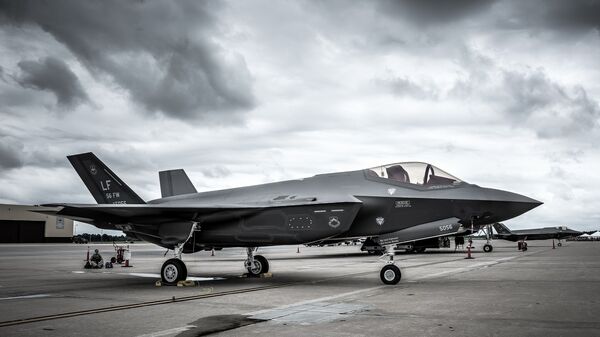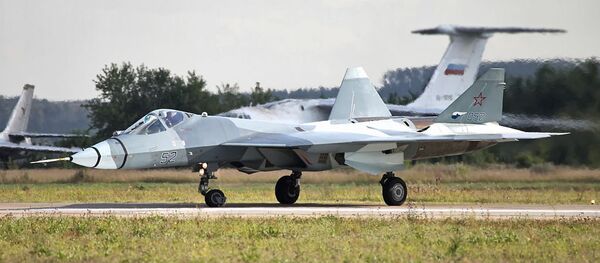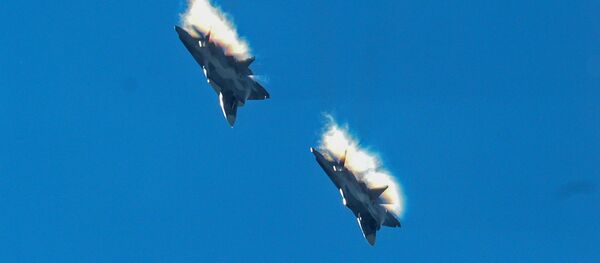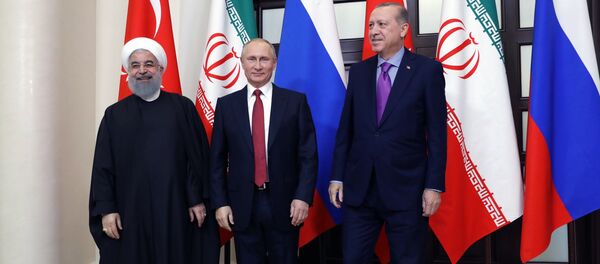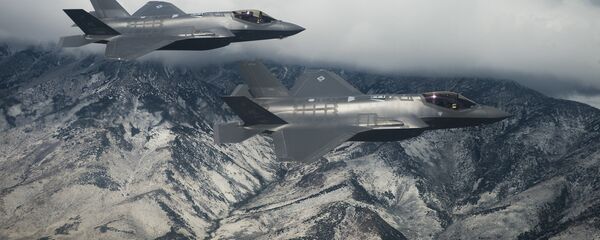Turkey and Russia penned a deal in 2017 for Ankara to buy four S-400 Triumf air defense systems for $2.5 billion. Turkey is also slated to buy 100 F-35 stealth aircraft from the US in the coming years, having been a longtime partner in developing the fighter-bomber. However, US officials fear that putting the two systems in close contact is dangerous, as it could expose vulnerabilities in the Pentagon’s premier warplane to the primary air defense system used by its major emerging geopolitical rival.
That fear becomes all the more pertinent as Moscow markets the S-400 to more and more countries: China, Saudi Arabia, Iraq and India have all weighed buying or already bought their own S-400 units, Sputnik reported.
June was the deadline set by Washington for Turkey to back out of the deal, but Erdogan remains stalwart in the face of impending US sanctions and the cancellation of Turkey’s partnership in the F-35 project.
The Turkish Defense Ministry has reportedly weighed the option of replacing its planned F-35 fleet with Russian Su-57 or Chinese J-31 jets — fifth-generation aircraft comparable to the F-35 in capabilities.
Radio Sputnik’s Loud and Clear spoke Tuesday with Dr. Gönül Tol, the founding director of The Middle East Institute’s Center for Turkish Studies and a former professor, about the situation.
Tol said Erdogan believes he has no other choice, because NATO’s defense agreement with Turkey is not enough to meet Turkish security needs and NATO partners haven’t proven willing enough to share technology, such as the expensive MIM-104 Patriot missile systems, with Turkey. The US offered a single Patriot system to Ankara for a billion dollars more than it was already spending on four S-400 systems from Russia, Sputnik reported.
The agreement with Russia provides for both an affordable missile defense system and technology sharing, she said, citing the Turkish government.
"Turkey is completely dependent on Russia and Russian cooperation in Syria", she said, so it’s unlikely Turkey would simply buy the S-400s and shelve them in the interests of good relations with both sides, as some Gulf monarchies do with Western-made weapons systems.
"This is a very delicate moment,” Tol said, “not just for Turkey-US relations but also for Turkey-Russia relations".
"Certainly, I think the Turks have been negotiating with the American side; they really do not want sanctions", Tol told hosts Brian Becker and John Kiriakou. "That would deal a huge blow to the country’s ailing economy, and that's something President Erdogan wants to avoid.. but he hasn’t backed down on the S-400, and I don’t think he can at this point, so I think he will try to do damage control. Putting away those systems and not using it could be one of the options, but again, I don’t know what the Russians would say".
"There has been this lack of trust between Turkey and the United States, and the roots of that goes back to 2014 when the Obama administration decided to airdrop weapons to the Syrian Kurds battling” Daesh, Tol explained. “Turkey considers the Syrian Kurdish militia a terrorist organization. This is a branch of the PKK, which is also considered a terrorist organization by the United States. So from Turkey’s eyes, the Obama administration’s decision was a stab in the back — and from the US administration’s perspective, Turkey did not enough to combat the Islamic State [Daesh]".
Tol noted the question of extraditing Fethullah Gulen, a Turkish scholar hiding out in the US whom Erdogan blames for orchestrating the failed 2016 coup against him but whom the US has refused to send back to Turkey, remains a sore spot as well. The Turkish government is also chafing under compliance with US sanctions against Iran, since they “put Turkey in a very difficult spot.”
The scholar noted that while Erdogan and US President Donald Trump enjoy a personal rapport, the drums for punishing Turkey for the S-400 deal are being beaten primarily by the US Congress — even at the risk of losing Incirlik Air Base, a critical hub for US air forces that, according to the Stimson Center, houses 50 US tactical nuclear weapons.
"Using Incirlik as a trump card against the US administration is not new, but I think the bad news for Ankara is that now there is an understanding in Washington that they have to find alternatives. And there has been this search for alternatives as bases to Incirlik Air Base. I think in that regard, the American side is not that desperate: they can find alternative bases that could be more costly maybe… but they do have options. So I think it’s important for the Turks not to overplay that hand".
